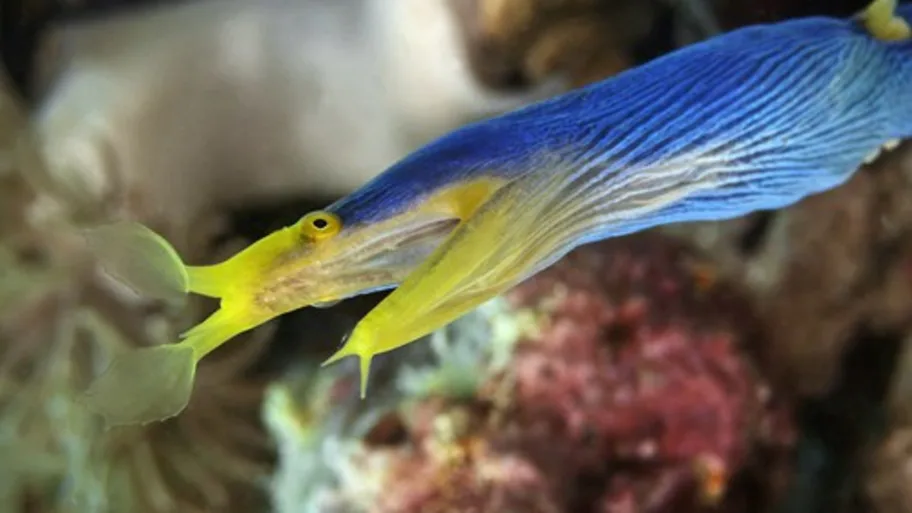
- Science news
- Frontiers news
- Dr. Orsolya Valkó joins Frontiers in Ecology and Evolution
Dr. Orsolya Valkó joins Frontiers in Ecology and Evolution
As the international community mobilizes to tackle the urgent matter of ecosystem restoration, Frontiers in Ecology and Evolution is delighted to bring Dr. Orsolya Valkó’s expertise to the journal, helping drive forth crucial research in the field. Dr. Valkó was recently appointed co-Specialty Chief Editor for our Conservation section.
Dr. Valkó currently heads the 'Lendület' Seed Ecology Research Group at the Centre for Ecological Research, Institute of Ecology and Botany in Vácrátót, Hungary. Her lab focuses on pushing the boundaries of our knowledge on the role of seeds in mitigating degradation processes instigated by human-mediated degradation, which puts native ecosystems under large pressure. Nature conservation and plant ecology have been the focus of her scientific interest since her early university days, where she studied conservation and restoration possibilities in European grasslands. Since then, she has been involved in projects across a plethora of habitats- ranging from urban and agricultural areas to sacred natural sites- with the aim of evaluating and developing new methods for restoration, such as grazing, mowing, shrub cutting, fire, hay transfer, topsoil removal.
We spoke with Dr. Valkó about her goals for the Conservation section and her thoughts on the future of restoration ecology.
Putting the spotlight on restoration ecology in Frontiers in Ecology and Evolution
Dr. Valkó is enthusiastic about bringing a fresh focus on restoration to the foreground of our Conservation section, emphasizing the need for an interdisciplinary approach:
“Successful ecological restoration depends on many disciplines. Other disciplines of environmental sciences, including earth sciences, physics, and chemistry can give a solid basis for restoration. And of course, social sciences are very important, too, as successful restoration should always involve people and the societal context. First, restoration of ecosystems is inevitable for restoring the ecosystem services they can provide to support human well-being. Second, for successful restoration, we should consider the demographic, political, institutional, and technological environment in the subjected regions. Finally, especially in rural communities, we should consider and respect the connections between the local people and nature during restoration and in the post-restoration period.”
Looking ahead: The UN Decade for Ecosystem Restoration
As we enter the UN Decade for Ecosystem Restoration, Dr. Valkó also hopes to use the section’s open platform to tackle key challenges relative to this. As it stands, she notes that one of the most interesting and perhaps most pressing issues is to restore ecosystems that can maintain their desired state in the long term, considering human-driven changes in the landscape and the climate:
“Of course, there are still huge knowledge gaps regarding restoration prospects and best practices for several ecosystems. Another important challenge is cost-effectiveness: funds are always limited and therefore it is very important to develop cost-effective methods on a fine scale that can allow the restoration of larger areas, even when funds are limited. And last but not least, the most important task for the future is to find science-based solutions for preventing and halting the degradation of the remaining intact natural ecosystem.”
How can Open Science help us find solutions?
Dr. Valkó believes thatOpen Access can play a vital role in meeting the urgent need for ecosystem restoration:
“Each year, there are thousands of restoration projects worldwide, and now the UN Decade for Ecosystem Restoration’s goal is to restore 350 million hectares of degraded landscapes by 2030. From the past and forthcoming restoration projects a large body of knowledge will accumulate, and sharing new developments, best practices, and potential obstacles on an Open Access platform would be a great support for future projects. Open Access research is especially important in the case of restoration and conservation, allowing stakeholders, policy makers and conservation managers to easily obtain high-quality, state-of-the-art scientific support and guidance. Frontiers Research Topics (focused article collections) are especially attractive in this way, as the articles are in a carefully prepared “knowledge package” and the stakeholders can get a good overview of a certain topic.”
We look forward to seeing the Conservation section grow under the guidance of Dr. Valkó and Prof. Krithi Karanth, who has headed the section since 2018 . Welcome to the Frontiers family!
Follow Frontiers in Ecology and Evolution on Twitter and sign up for article alerts to receive the latest research






